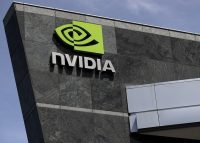Home » Business News » Nvidia’s ARM acquisition has stalled with more than $1 billion deadlines at stake
Nvidia’s ARM acquisition has stalled with more than $1 billion deadlines at stake
https://www.whatjobs.com/news/business-news/nvidias-arm-acquisition-has-stalled-with-more-than-1-billion-deadlines-at-stake

By Nagasunder in Business News, posted August 20, 2021
The large-scale merger of Nvidia Corp. and ARM Holdings LLC is not expected to occur within the time frame Nvidia anticipates, but there are more than 1 billion reasons to do so next year.
Nvidia CFO Colette Kress announced another quarter of record earnings and sales on Wednesday while softening her wording of the $40 billion acquisition, which has caused much criticism in the semiconductor industry jobs.
In May, Kress said Nvidia NVDA -2.15% remained “on track to close the transaction within our original timeframe of early 2022.” But in a conference call Wednesday, she said, “discussions with regulators are taking longer than initially thought.”
In a subsequent interview with MarketWatch, Kress refused to set a new timetable but did discuss the most critical deadlines and funds involved. “The overall regulatory process is probably taking a little bit longer than anticipated,” she said. “We believe the regulators will see the value, the benefits of this deal, to the benefit of this industry, but we don’t have a specific date on when we think this will close.”
Kress pointed out that the deal has to close by September 2022, giving Nvidia roughly a year. Otherwise, ARM’s current owner, Softbank Group Inc. 9984, -1.05%, gets to keep a $1.25 billion breakup fee that Nvidia already made as a down payment. “We will deal with the issue in September 2022 if we have not reached regulatory approval, but right now we are confident that the regulators will see the benefit of the deal,” Kress later added in discussing the breakup fee, which was paid to Softbank. An additional $750 million in licensing fees were paid directly to ARM.
Earlier this month, there were reports that British regulators considered blocking transactions with Cambridge-based ARM due to concerns about national security jobs risks. Strikingly, when MarketWatch asked Kress about the "top three regions" she dealt with on regulatory issues-the United States, Europe, and China- she corrected the reporter to say that there were four and added the United Kingdom. “We are continuing, working with the U.S., U.K., EU, and China,” she said, “each of the four major jurisdictions.”
When asked if one country was specifically holding things up, Kress said that Nvidia continues to work with four main regulatory agencies and a few smaller ones. “There is not one geography; each has its own process,” she said.
The deal will add microprocessor designer jobs to NVIDIA’s rapidly growing products. The latter licenses its chip design and cooperates with Intel Corporation INTC (-0.95%) and Advanced Micro Devices Inc. AMD (-3.83% of data centers) Form direct competitors. / Server market. ARM still holds a small share there, and Nvidia is strong in selling graphics processors that run alongside core microprocessors.
Adding the chip designers that power most smartphones in the world would be a nice addition, but Nvidia's incredible growth looks good on its own. Nvidia stated that its data center jobs chip sales increased 35% year-on-year to a record US$2.37 billion in the last quarter, while gaming products grew faster this year, reaching 85% to US$3.05 billion. Cards were in short supply and sold. Soon. Overall, revenue increased by 68% to US$6.51 billion, and revenue for the October quarter is expected to increase by another 44% over the same period last year, reaching approximately US$6.8 billion.
Unlike the earlier growth in-game sales, this cryptocurrency has not fallen behind Nvidia’s current overall sales and demand peaks. The sales of cards designed by Nvidia, especially those used for cryptocurrency mining jobs, were actually disappointing, at 266 million U.S. dollars. In comparison, Kress was expected to be 400 million U.S. dollars in the last quarter. Constantly changing demand for popular cryptocurrency miners such as Ethereum ETHUSD -0.99% and the ever-changing regulatory environment may hurt crypto-related sales. Kress stated that these demands would be "minimum" this quarter.
Most companies that admit setbacks in large-scale mergers and slow sales of typical hot product categories may face criticism from Wall Street. But double-digit high-income growth offset these disappointments. Shares of Nvidia, the most valuable chip maker in the S&P 500 SPX Index, rose 2% to -1.07% in after-hours trading on Wednesday. If this big problem is not realized, investors would better hope that these growth rates remain high.
Source: Marketwatch
Image Credits: Marketwatch












